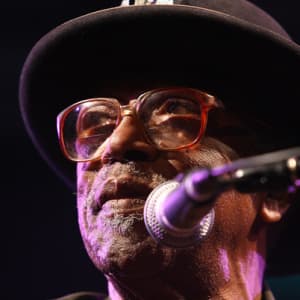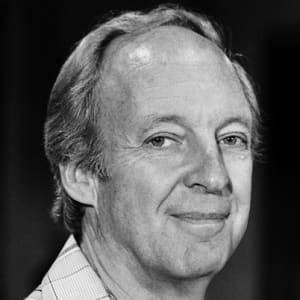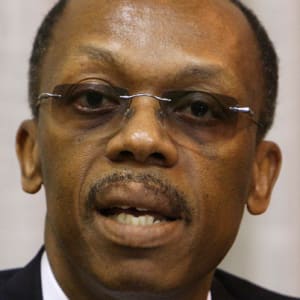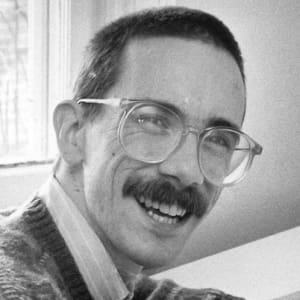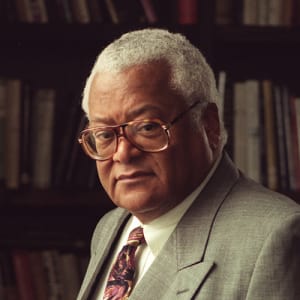
James Lawson
Reverend James Lawson was a leader in the Civil Rights Movement who advocated for the use of nonviolent tactics to effect positive social change.
Who Is Reverend James Lawson?
Reverend James Lawson (born September 22, 1928) was a leader in the Civil Rights Movement who advocated for the use of nonviolent tactics. He was involved with the struggle to desegregate downtown Nashville, the Student Nonviolent Coordinating Committee, the Freedom Rides and the Southern Christian Leadership Conference. In 1968, he supported the Memphis sanitation workers' strike, and invited Martin Luther King Jr. to give a speech in Memphis; on this visit, King was assassinated. Throughout his life, Lawson has remained committed to nonviolence, protest and civil disobedience to effect positive social change.
Family
James Lawson was born on September 22, 1928, in Uniontown, Pennsylvania, to Reverend James Morris Lawson Sr. and Philane May Cover Lawson.
Soon after arriving in Nashville, Lawson met Dorothy Wood. On July 3, 1959, they married; the couple had three sons together.
Education
Lawson received his B.A. from Baldwin-Wallace College in 1952. After his time as a missionary in India, he studied theology at Oberlin College before transferring to Vanderbilt. Following his expulsion from Vanderbilt, he finished his graduate degree at Boston University's School of Theology.
Vanderbilt University
Lawson being expelled by Vanderbilt in 1960 made national headlines. Facing strong faculty objections, including some resignations, the school offered a compromise for him to receive his degree from Vanderbilt by transferring credits or going through a written examination, but Lawson turned this down.
However, Lawson demonstrated that he didn't harbor ill will toward Vanderbilt when he became a lecturer there in 2006. In addition, in 1996 he was given Vanderbilt Divinity School’s first Distinguished Alumnus Award. He has donated many of his papers to the Vanderbilt Libraries’ Special Collections.
Activist in the Civil Rights Movement
Martin Luther King Jr. called James Lawson "the greatest teacher of nonviolence in America," and civil rights leader Diane Nash, who learned about nonviolent protest from Lawson, once said of him, "I think his impact was fundamental and tremendous. I think that he, more than anyone else really, is why the Civil Rights Movement was nonviolent."
Nashville
After meeting King in 1957 at Oberlin College, Lawson heeded King's advice to go to the South in order to share nonviolent methods with the Civil Rights Movement. Lawson became a field officer for the Fellowship of Reconciliation and moved to Nashville in 1958; that fall, he enrolled in the divinity school at Vanderbilt University.
In Nashville, Lawson began to lead seminars about nonviolence. Students from the different colleges in the area were drawn to these workshops; among the future leaders in attendance were Nash, John Lewis, James Bevel, Marion Barry and Bernard Lafayette. They weren't entirely convinced by Lawson's approach — but, as Nash explained, "I kept going to the workshops because I couldn’t find anyone else who was trying to do anything else."
In the fall of 1959, Lawson and the Nashville students prepared to conduct sit-ins to integrate lunch counters downtown (chosen because black women had described how difficult and demeaning it was to cope with segregation while shopping in downtown Nashville). In preparation, prospective participants had to pretend to be at a sit-in while others yelled, denigrated or attacked them.
The sit-ins began on February 13, 1960, after similar efforts had started in Greensboro, North Carolina. Despite being arrested and facing violent white crowds, the protesters were highly disciplined, a credit to Lawson's training. Tensions rose in the city (a black attorney's home was bombed in April), but by May 10, 1960, some lunch counters had desegregated; in the following years other businesses also integrated their facilities. However, Lawson's involvement with the demonstrations led to Vanderbilt expelling him in March 1960.
SNCC
Lawson was invited by Ella Baker to deliver the keynote speech at the April 1960 meeting in North Carolina where the Student Nonviolent Coordinating Committee (SNCC) was formed. Lawson felt that older organizations, such as the National Association for the Advancement of Colored People, could be too hidebound and focused on incremental progress. At the conference, he criticized "the futile middle-class technique of sending letters to the centers of power" and "half-way efforts to deal with radical social evil."
Lawson was also a co-author of the SNCC's statement of purpose. And his teachings are evident in SNCC instructions such as: "Don’t strike back or curse if abused … Remember love and nonviolence."
Freedom Rides
In 1961, the Freedom Rides — attempts to integrate interstate transportation — were in danger of stopping because of violent attacks, including a firebombing in Alabama. However, Lawson supported the Nashville students who wanted them to continue. He shared nonviolent techniques with Freedom Riders and joined in the protests himself. In the fall of 1961, interstate transit terminals were desegregated.
Memphis
In 1962, Lawson became a pastor at a Methodist church in Memphis. When sanitation workers went on strike in 1968 over low pay and dangerous working conditions in the city, he offered his support by chairing the strike committee. Lawson also invited Martin Luther King Jr. to visit and bring attention to the cause.
King came to Memphis and delivered his "I've Been to the Mountaintop" speech. The next day, April 4, 1968, he was assassinated at a motel, which devastated Lawson.
Education in Nonviolence
Lawson's belief in nonviolence took root when he was young. After he'd slapped a white boy who'd called him a racial slur, Lawson's mother asked what he'd accomplished. Considering this began to change Lawson's approach to confrontation.
As a student at Baldwin-Wallace College, Lawson joined the Fellowship of Reconciliation, a pacifist organization, and began to learn more about nonviolence. Following his 1952 release from prison for refusing to obey the draft, he spent three years in India as a Christian missionary. There, Lawson was able to learn about satyagraha, Mahatma Gandhi's philosophy of nonviolent resistance, which had helped end British rule in India (while in India, Lawson was also excited to learn about the bus boycott taking place in Montgomery, Alabama).
Talking about the power of nonviolence in 1985, Lawson said, "Psychologically, it is an extreme weapon. I turn the other cheek. Now, it's true the assailant may then sock me on that cheek as well. But it may also happen that the assailant does something else, that he is upset that instead of my using the fist against him I turn the other cheek."
Early Life
Lawson grew up in Massillon, Ohio. Following in the ministerial footsteps of his father and grandfather, he got his local preacher's license in 1947.
Draft Resister
During the Korean War, Lawson refused to obey his draft notice. Though eligible for a deferment as a clergyman, he decided not to apply, as he didn't feel it was just for him to receive an exemption when others couldn't.
Lawson was therefore arrested. At his April 1951 trial, he was sentenced to three years in prison; he served 14 months.
Los Angeles
In 1974, Lawson became a pastor at Holman Methodist Church in Los Angeles. He stayed in the role until retiring in 1999.
Work Continues
His move to Los Angeles and even retirement didn't stop Lawson from standing up for what he believes in. He has supported immigrant rights, LGBT equality and reproductive choice, and has protested against poverty and U.S. military actions. His later years saw more civil disobedience arrests for Lawson than in the 1960s.
In addition, via his students, congregations and endeavors such as the James Lawson Institute, Lawson's teachings will continue to influence policy and lift up those in need.
